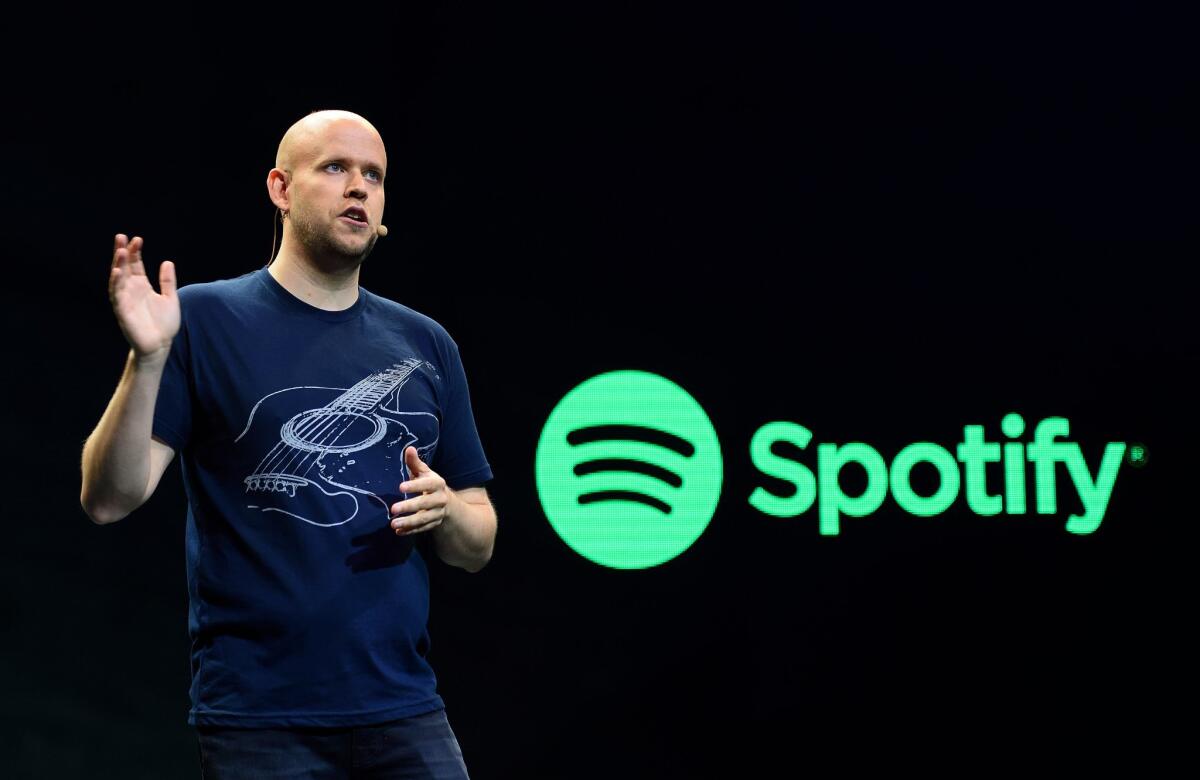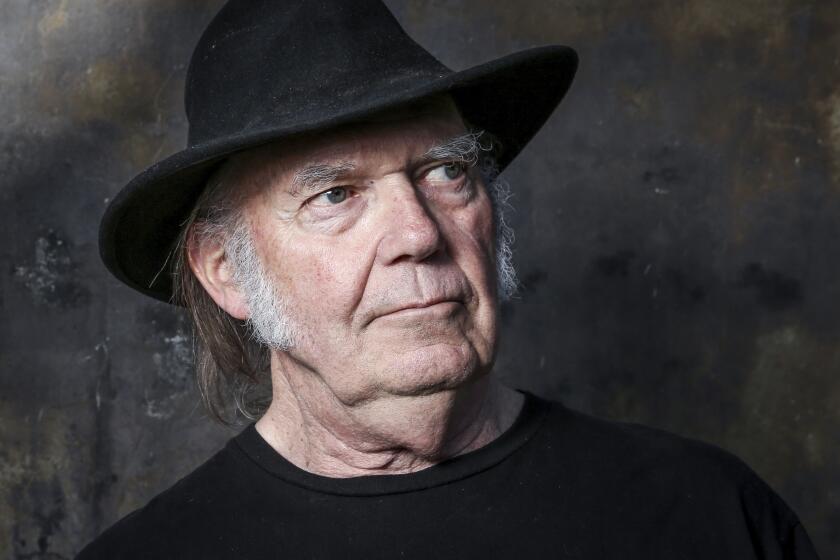Spotify hit with second songwriter lawsuit in two weeks

Daniel Ek, chief executive of Spotify, speaks at a news conference in May.
Another songwriter has sued streaming music service Spotify -- accusing the company of âwholesale copyright infringementâ -- in an escalation of the ongoing battle over online royalties and licensing.
A complaint filed Friday on behalf of Newburyport, Mass.-based artist Melissa Ferrick accused the digital music giant of using her music without properly licensing her work, marking the second such suit in two weeks.
Ferrickâs complaint, filed in U.S. District Court in Los Angeles, is seeking class-action status and says songwriters should get more than $200 million from the Swedish company, which has U.S. offices in New York, Los Angeles and San Francisco.
This suit comes shortly after Cracker and Camper Van Beethoven frontman David Lowery, a vocal critic of online music services, brought a separate class-action case against Spotify.
The suits highlight the ongoing dispute between Spotify, which gives its 75 million users access to virtually unlimited music, and musicians who are witnessing a long-term decline in recorded music sales. Many have complained about paltry royalties from popular streaming services such as Rhapsody and Google Play Music.
Spotify isnât new to controversy. Hereâs a rundown of the music streamerâs history of feuds with artists and songwriters over royalties, privacy and more.
The recent lawsuits concern licenses for the reproduction of compositions -- the lyrics and music -- behind the sound recordings, not the sound recordings themselves.
According to Ferrickâs complaint, Spotify must notify the copyright holders before distributing reproductions of their compositions in order to obtain a license. Spotify has failed to do so in many cases, the suit alleges.
Ferrickâs songs have been streaming âapproximately one million timesâ on Spotify without a license, the complaint says.
Spotify, said to be valued at $8 billion, did not immediately respond to a request for comment, but has previously said it has paid more than $3 billion in royalties to artists, songwriters, and the record labels and music publishers that represent them.
Experts have previously accused Spotify of lacking adequate systems to pay songwriters and publishers the royalties theyâre owed. Last month Spotify said that it is investing in a comprehensive system to solve the problem.
Spotify and other streaming services have long faced resistance from high-profile artists including Taylor Swift and Adele over the ad-supported version of the service that allows access to its library without a subscription fee.
Ferrick, who has made 17 albums, is represented by the Los Angeles law firm Gradstein & Marzano, which has also represented members of the 1960s band the Turtles in disputes with Internet radio leader Pandora Media and satellite radio company Sirius XM.
Follow Ryan Faughnder on Twitter for more entertainment business coverage: @rfaughnder
More to Read
From the Oscars to the Emmys.
Get the Envelope newsletter for exclusive awards season coverage, behind-the-scenes stories from the Envelope podcast and columnist Glenn Whippâs must-read analysis.
You may occasionally receive promotional content from the Los Angeles Times.












